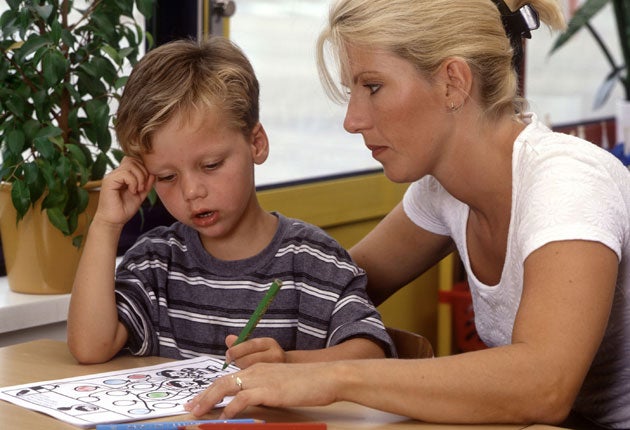Schools face huge rise in special needs cases
Premature babies may require new patterns of learning

The rising number of babies born prematurely will cause a rapid increase in special-needs pupils in schools, and that could overwhelm the school system, a leading academic has warned.
Medical care has improved so much in recent years that 80 per cent of premature babies now survive, but half of them have severe disabilities and represent a "new breed" of special needs children, said Professor Barry Carpenter of the Specialist Schools and Academies Trust.
Many premature babies are born so early that they are likely to have been born before the "wiring" in the brains develops properly, Professor Carpenter said. As a consequence, it is likely that they will form part of a group of children who will need to be taught differently from most other pupils requiring special-needs education.
"Their patterns of learning may be different to those we have previously known in children with learning difficulties," he told the Times Educational Supplement. "Schools will have to develop new ways of teaching to cope with the complex range of learning difficulties because the children do not fit the current models of how to help them.
"There is an ever-increasing group of children with complex needs who do not fit the current range of learning environments, curriculum models, or teaching and learning approaches, and who are challenging our most skilled teachers," he said.
"We are in uncharted waters but we are looking at transforming the learning opportunities of these children." Many of the children grow up with "complex" learning difficulties which include two different types of special needs. This makes it harder for schools to satisfy their educational requirements, because the teaching techniques devised for each type of special need may be inappropriate for a child who has both.
Children with autism can often benefit from being taught visually, but if the same child has attention-deficit hyperactivity disorder (ADHT), the visual-teaching technique could conflict with strategies used in behaviour management. Different teaching techniques are likely to have to be devised to overcome the conflict.
To help identify how schools and other educational establishments can best help the special-needs children, many of whom were disabled in the womb by drug or alcohol abuse, the Government is providing £550,000 to fund a research project.
Professor Carpenter, who received an OBE in 2001 for his services to special-needs children, is heading the two-year project which involves 60 children, 12 special schools, and a range of teachers, carers, parents and 10 specialist advisers. The aim is to identify teaching methods that can then be adopted in schools across the country, and it is hoped that the first new techniques can be passed on to 50 schools by next autumn for further testing.
There are already at least 23,000 pupils in Britain's schools who are categorised as having severe learning difficulties, while 9,000 have profound and multiple learning difficulties.
Mary Bousted, general secretary of the Association of Teachers and Lecturers, questioned whether the actual number of children requiring special needs provision has risen but said there is greater recognition that they need help. She added: "I don't think the actual number has increased. What has improved is the recognition and diagnosis of conditions which create special learning needs.
With improved recognition and diagnosis comes greater demands for resources to meet identified need." Ed Balls, the Schools Secretary, added: "It is important that we continue to support schools that are working with children with the most complex needs, and that we have sufficient staff using the most effective teaching strategies."
Join our commenting forum
Join thought-provoking conversations, follow other Independent readers and see their replies
Comments
Bookmark popover
Removed from bookmarks